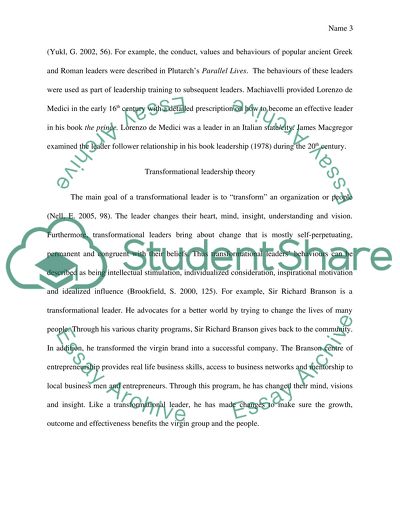Cite this document
(Leadership Theories and Their Applicability to Leadership Literature review - 1, n.d.)
Leadership Theories and Their Applicability to Leadership Literature review - 1. Retrieved from https://studentshare.org/social-science/1657314-how-do-theories-of-leadership-provide-practical-advice-on-how-to-be-an-effective-leader-discuss-with-reference-to-at-least-two-theories-or-models-of-leadership
Leadership Theories and Their Applicability to Leadership Literature review - 1. Retrieved from https://studentshare.org/social-science/1657314-how-do-theories-of-leadership-provide-practical-advice-on-how-to-be-an-effective-leader-discuss-with-reference-to-at-least-two-theories-or-models-of-leadership
(Leadership Theories and Their Applicability to Leadership Literature Review - 1)
Leadership Theories and Their Applicability to Leadership Literature Review - 1. https://studentshare.org/social-science/1657314-how-do-theories-of-leadership-provide-practical-advice-on-how-to-be-an-effective-leader-discuss-with-reference-to-at-least-two-theories-or-models-of-leadership.
Leadership Theories and Their Applicability to Leadership Literature Review - 1. https://studentshare.org/social-science/1657314-how-do-theories-of-leadership-provide-practical-advice-on-how-to-be-an-effective-leader-discuss-with-reference-to-at-least-two-theories-or-models-of-leadership.
“Leadership Theories and Their Applicability to Leadership Literature Review - 1”, n.d. https://studentshare.org/social-science/1657314-how-do-theories-of-leadership-provide-practical-advice-on-how-to-be-an-effective-leader-discuss-with-reference-to-at-least-two-theories-or-models-of-leadership.


